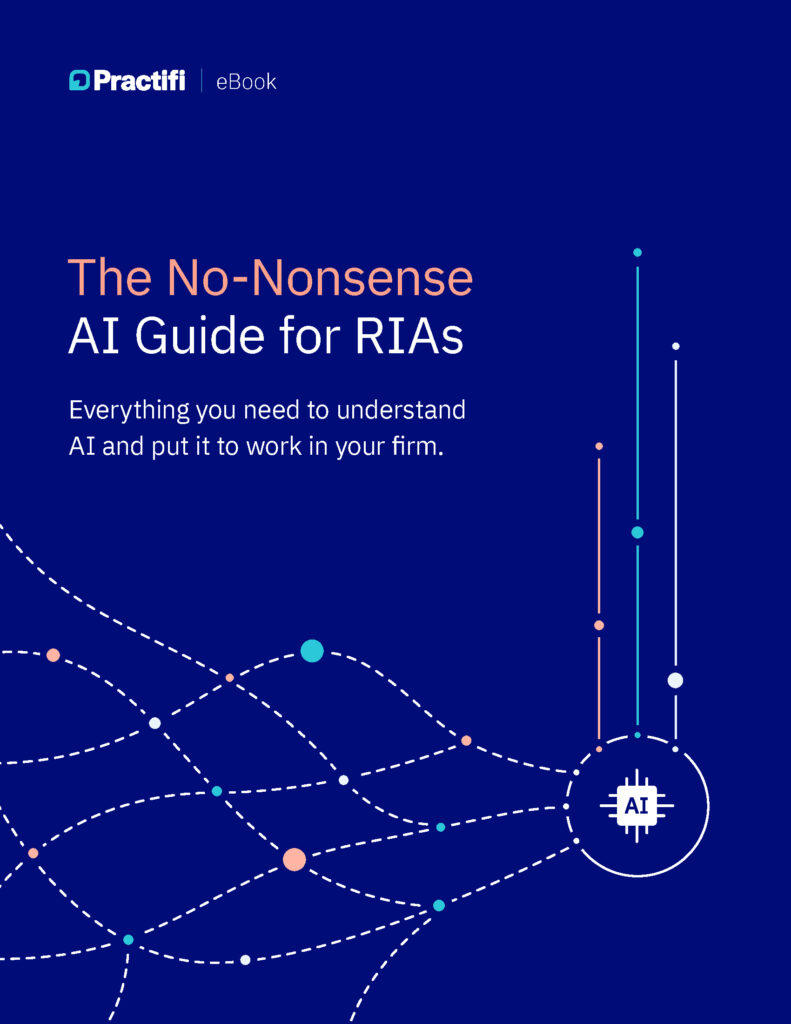
Health + Wealth: How Advisor Well-Being Shapes Better Outcomes
Advisors are trained to focus on everyone else. You manage complex portfolios, ease client concerns and guide people toward their financial goals. Day after day, the work asks you to stay sharp and emotionally available. In a profession built on supporting others, it’s easy to let your own well-being slip into the background. But the way you feel directly affects how you perform.
Financial advisors operate in a high-stakes, high-pressure environment. The constant demands, the emotional weight of client conversations, the mental focus required to navigate market swings — it adds up. You spend your days helping clients build and protect their wealth. But how often do you think about your own most valuable asset? Not your portfolio. Not your network. Your health.
Skill and experience matter, but they’re not enough on their own. Clarity, energy, and resilience are what keep you consistent, and those don’t happen by accident. Taking care of your well-being is a strategic move that strengthens your relationships, shapes how you serve clients and helps you make decisions and contribute to the growth of your firm.
The best version of your work starts with a better version of you. Invest in your well-being and treat it like the advantage it truly is.
Why Wellness Is A Smart Business Strategy
Success in wealth management depends on more than market knowledge. It requires focus, presence, sound judgment and the ability to connect with people through high-stakes conversations. Wellness supports all of that.
When your physical or mental energy is depleted, performance suffers — sometimes subtly, sometimes significantly. One study found a 37% increased likelihood of poor cognition, including memory deficits, among individuals experiencing elevated stress levels, even after accounting for cardiovascular and lifestyle factors. That kind of cognitive decline makes it harder to process information, make confident decisions and show up fully for client conversations.
On the other hand, advisors who prioritize wellness are better equipped to handle pressure, stay sharp through long days and build meaningful connections. The result is stronger decision-making, deeper trust with clients and fewer costly mistakes. Choosing to invest in your well-being is a signal that long-term performance matters. Clients notice it. Colleagues respect it. And the firm benefits from it.
Spot the Red Flags: Is It Time to Reinvest In You?
Most advisors know how to spot early signs of trouble in a portfolio. But when it comes to their own well-being, the warning signs often get overlooked. Some signals show up physically. You skip meals without realizing it. Sleep becomes inconsistent. Fatigue follows you into client meetings. Your mind stays active long after the day ends, but not in a productive way.
Other signs are easier to miss. You find yourself distracted during conversations or zoning out in meetings. Work that once felt fulfilling now feels like a grind. The emotional spark that drives great client relationships starts to dim.
Then there’s decision fatigue: the gradual drain that happens when you make too many choices in a short amount of time. Over the course of a day filled with market updates, client questions, internal meetings and compliance reviews, your mental resources get depleted. By the end of the day, even small decisions, like replying to an email or planning dinner, can feel overwhelming.
None of this means you’re failing. It means your capacity is maxed. The first step back to clarity is recognizing the signs and giving yourself permission to recalibrate.
Micro-Wellness Habits That Actually Work
When your days are packed and your mind is moving fast, simple routines start to slip. You might sit for hours without moving, push through the day without pausing or go from one conversation to the next without a breath in between.
That’s usually the moment to pause and consider what habits could help bring structure back into the day. Even small changes can create space to think more clearly, feel more grounded and stay ahead of the stress instead of chasing it.
You’ve probably seen these wellness habits before. That’s because they work. They’re not trendy or complicated, just reliable tools for staying steady when the pace picks up.
Try starting with one of these:
- Hydrate early and often. Start your day with water and keep it nearby during meetings. Dehydration impacts focus more than most people realize.
- Eat real meals. Avoid grazing between calls or skipping lunch entirely. Fueling your body helps you stay clear-headed throughout the day.
- Build in recovery time. Take five-minute pauses between meetings to move, stretch or just breathe. Even short breaks improve focus and reduce mental fatigue. A simple way to make it automatic is to set 30-minute meetings to 25 minutes and hour-long meetings to 50 minutes, giving yourself a built-in buffer to reset before the next conversation.
- Move your body. Physical activity doesn’t need to be long or intense. A short walk after lunch or stretching between tasks can help reset your energy.
- Create boundaries. Block time for deep work, set a firm end to your day or protect your morning planning time. Boundaries prevent burnout and protect your mental space.
- Make space for mental resets. Mindfulness, journaling, or even a few deep breaths outdoors can help you recharge between demands. Protecting your own mental space allows you to better hold space for others.
As James Clear writes in Atomic Habits, “You don’t rise to the level of your goals. You fall to the level of your systems.” In other words, big aspirations don’t matter if your daily habits don’t support them. If you want to feel focused, energized and present, the systems you build around your health need to make that possible. Start small. Let those habits work in your favor.
Your Health Is A Growth Plan
You help clients think long term. You coach them through uncertainty. You remind them that small, consistent investments matter.
The same logic applies to you.
When you treat your well-being as part of your professional strategy, everything shifts. You think more clearly. You lead more effectively. You bring more presence to every conversation. That’s not a bonus. That’s the foundation. This goes beyond perfect morning routines and productivity hacks. The goal is to build a system that supports the kind of advisor you want to be — for your clients, your team and yourself.
So here’s the question: What would change in your work if you started showing up at full capacity, every day?
Start there. Choose one habit. Make space for yourself, the same way you make space for your clients. Your health is not separate from your success. It’s part of the plan.












